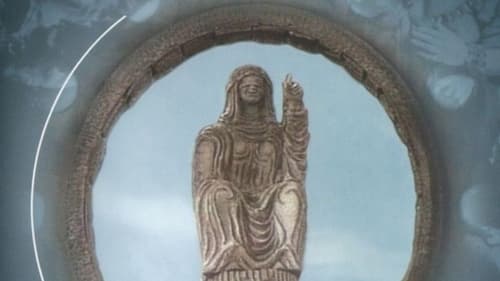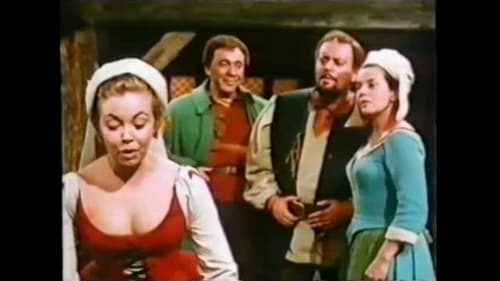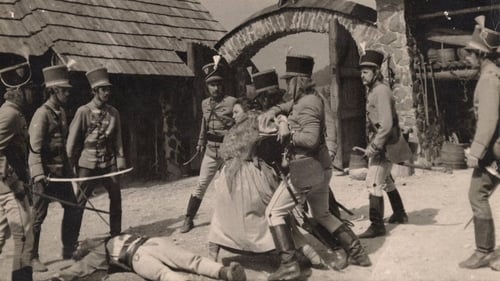Lucia Popp
Birth : 1939-11-12, Uhorska Ves, Slovakia
Death : 1993-11-16

Haydn’s Creation, the culmination of his life’s work, in a legendary 1986 performance conducted by Leonard Bernstein in the exquisite Baroque splendor of the Benedictine Abbey of Ottobeuren, Bavaria, now available on DVD for the first time. This spectacular performance also includes Bernstein’s spoken introduction to the performance —always an invaluable addition to any concert. This work, considered by many to be Haydn’s masterpiece, depicts the creation of the world as inspired by the texts of Genesis, the Book of Psalms and Milton’s Paradise Lost. Though deeply religious in conception, the oratorio gives a physical sense of the immensity of nature and the world’s creation.
“The Creation gives us time to remember—and rejoice in— the purity and grace and fortitude of Nature, to restore our souls, to recover our moral strength, and to rediscover our power to praise”—Leonard Bernstein

Herself
This television essay from 1985 was written by Leonard Bernstein to commemorate the 125th anniversary of Gustav Mahler's birth. Recorded in Israel, Vienna and later in London, it is punctuated by biographical interludes and illustrated by musical examples drawn from the cycle of Mahler's works recorded by Bernstein. Bernstein talks, plays and conducts various orchestras (Israel Philharmonic Orchestra, London Philharmonic Orchestra, Wiener Philharmoniker) and soloists (Janet Baker, Christa Ludwig, Edith Mathis, Lucia Popp, Walton Groenroos) in performances spanning 17 years. Leonard Bernstein also examines the roots of Gustav Mahler's inspiration. The programme also features music from the nine symphonies, 'The Song of the Earth' and the 'Wunderhorn Cycle'.

Pamina
The Queen of the Night persuades Prince Tamino to rescue her daughter Pamina from captivity under the high priest Sarastro; instead, he learns the high ideals of Sarastro's community and seeks to join it. Separately, then together, Tamino and Pamina undergo severe trials of initiation, which end in triumph, with the Queen and her cohorts vanquished. The earthy Papageno, who accompanies Tamino on his quest, fails the trials completely but is rewarded anyway with the hand of his ideal female companion Papagena.

Every bar bubbles with the spirit of the Bohemian countryside in Otto Checnk's picturesque 1982 production from Vienna, where Smetana's comic masterpiece first conquered the heart of opera lovers with its lilting melodies, lovable characters and rousing Czech folk dances. This colourful, beautifully sung performance features legendary Czech soprano Lucia Popp and German tenor Siegfried Jerusalem. Filmed live at the Wiener Staatsoper in 1982, the appearance of the townsfolk, wearing their traditional Bohemian costumes, exuberantly singing and dancing, serves to quickly draw us into the early 1870s and this engaging comedy of love nearly thwarted but ultimately triumphant.

Theodor Guschlbauer conducts the Chorus and Orchestra of the Vienna State Opera in this lavish staging of Johann Strauss's operetta. Recorded in 1980, the production features some of the leading performers of their day, including Lucia Popp, Edita Gruberova, Bernd Weikl, Walter Berry and Brigitte Fassbaender.

Sophie, seine Tochter
This performance of Richard Strauss' opera Der Rosenkavalier (1979) features the vocal talents of Gwyneth Jones in the lead role; recorded at the National Theatre Munich.

Marzelline
This production is a gala affair; the sets are traditional (evocative of 18th-19th century Spain); the lighting is bright, so colors are good and one can see all of the action. Singers are generally well chosen and perform admirably. However, at this point, slight reservations creep in; although Janowitz (Fidelio/Leonore) and Kollo (Florestan) look "good" and act well, the singing parts tax them a bit when pushed to the limit. Most of the time that doesn't matter, and an argument can be made that a little vocal strain is in character with their dire plight. Ideally, for me, Vickers as Florestan would have added extra vocal heft and more sensitive acting than Kollo.

Soprano
A very visual and profound dramatization of the various sections of Carmina Burana, a symphonic piece composed by Carl Orff about medieval poetry by an anonymous author.

Self / Marzellina in 'Fidelio'
In this documentary portrait prepared for the anniversary of Ludwig Van Beethoven's 200th birthday, Leonard Bernstein illustrates his analysis with excerpts from his performances of Beethoven's Piano Concerto No. 1 in C Major and the Ode to Joy from the Ninth Symphony.

Marie
A tsar and a carpenter switch places amid great laughs and endearing love .

Marcellina
In the late 1960s Rolf Liebermann, the legendary intendant of the Hamburg State Opera, had the visionary idea of presenting a number of operas in filmed versions, among the first ever done in color, to be shown on German television. This is the historic recording of a 1968 production by the Hamburg State Opera.

Christel von der Post

Anna Reich
When Sir John Falstaff decides that he wants to have a little fun he writes two letters to a pair of Window wives: Mistress Ford and Mistress Page. When they put their heads together and compare missives, they plan a practical joke or two to teach the knight a lesson. But Mistress Ford's husband is a very jealous man and is pumping Falstaff for information of the affair. Meanwhile the Pages' daughter Anne is besieged by suitors.

erster Knabe

Tereza
This film is one of the most popular pictures of Slovak cinema and relates the story about the legendary folk hero and brigand Juro Jánošík [1688-1713] and the social situation in Slovakia of the late 17th and early 18th centuries. The first part talks about Jánošík's childhood, studies and return to his native village. In the second part Jánošík leaves for the hills, where he organizes his band of brigands and starts an anti-feudal resistance. The film concludes with Jánošík's execution.

Drama about the rebellion of the Trencín Infantry Regiment against its superior officers in the Serbian city of Kragujevac, at the end of the First World War. It was the biggest and deadliest rebellion in the Austro-Hungarian army.











